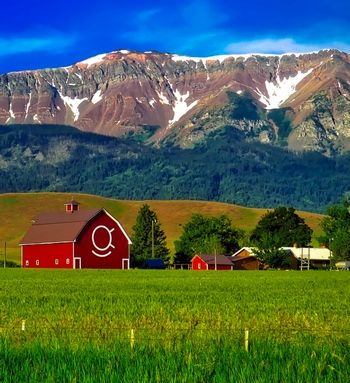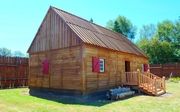
Publisher:
Bonnie King
CONTACT:
Newsroom@Salem-news.com
Advertising:
Adsales@Salem-news.com

~Truth~
~Justice~
~Peace~
TJP
Dec-03-2018 16:48

 TweetFollow @OregonNews
TweetFollow @OregonNews
The Roots of Gambling in Oregon History PART 1
Bonnie King, Contributing Writer Salem-News.comWhat is the history of gambling in Oregon? Find out as we explore the fascinating history of gambling activity of the Beaver State.
 Gambling through the Ages: Is Oregon a Safe Bet? |
(SALEM, Ore.) - Gambling and the state of Oregon have an age-old history. Back in November 2010, Measure 75 was defeated, putting to rest any hopes of nontribal casinos in the Beaver State. The measure would have permitted private casinos in Oregon, but it was roundly rejected by lawmakers.
Over time, Oregon has endured fluctuating fortunes when it comes to gambling-related activity. The annual lottery’s revenues fell sharply between 2008 and 2010, echoing calls for a renewed focus on the gambling industry. While casino gambling activities are a relatively new reality in the state, betting certainly isn't.
Oregon does not have the same appeal as New Jersey, Delaware, Nevada, or Pennsylvania in terms of gambling activity, but it certainly has an established casino and gambling history. This goes back to the Native American tribes during frontier times. The Columbia River, and particularly The Dalles was a hub of trading, bartering and gambling.
Slaves routinely bet on sporting contests and wagered food and clothing, beautiful shells, and animal pelts. Tribesmen partook in these activities with increasing alacrity, making gambling an integral component of daily life.
The Christian missionaries were having none of it, and put an end to gambling activity, only to be upended by other immigrants who brought new gambling games to the fore. Various gambling enclaves started springing up across Oregon, notably Chinese lottery houses, and bars in Portland.
In the early days, particularly the 1920s, lawmakers prohibited gambling activity in the city of Portland.
This did not stop a thriving black-market industry from growing. Such was the fierce competition, violence and mayhem among racketeers and gambling advocates that Robert Kennedy demanded Portland officials testify before the U.S. Senate in 1957.
In the years since, various forms of gambling activity have been legalized in Oregon State. The Oregon Lottery and tribal casino gambling are now an inextricable part of the Oregon landscape. It is a well-known fact that Oregon boasts a greater number of non-casino video gambling activity than any of the other states.
Such is the importance of gambling in Oregon that it makes up the fourth largest lottery budget of the 50 states (2010 figures). And gambling activity is certainly alive and well in the Native American reservations.
Consider that the Confederated Tribes of the Grand Ronde have donated tens of millions of dollars to various nonprofits across the state. These Oregon tribes are also heavily active in politics, with sizeable contributions being made to candidates opposing opening up rival casinos.
Native American Tribes and Gambling Activity
 Fort Umpqua |
There are 8 official tribes in Oregon, and each of them has been authorized by the Department of Interior to run a casino. One of the Oregon Native American tribes – the Confederated Tribes of Coos (Siuslaw Indians & Lower Umpqua) manage the Rivers Casino Resort in Coos Bay and the Three Rivers Casino Resort in Florence.
The Confederated Tribes of the Warm Springs Reservation own and operate the Plateau Travel Plaza in Warm Springs. Other Native American tribes in Oregon State include the Confederated Tribes of The Siletz Reservation, the Confederated Tribes of the Grand Ronde of The Community of Oregon, the Confederated Tribes of Warm Springs Reservation, the Confederated Tribes of the Umatilla Reservation, the Klamath Tribes, and The Coquille Tribe.
These federally recognised Oregon tribes all own Indian casinos. Gambling activity in these reservations is an important source of revenue and jobs for the local and surrounding communities. Clearly, there is tremendous interest among Native American people with gambling-style games.
The city of Portland was beset with many challenges during the early years, notably crime, corruption, and graft. Over the years, there has been a move towards greater liberalization of gambling activity in Oregon.
Records indicate that between 1805 and 1843, the explorers characterized the Native Americans as fantastic gamblers. Many gambling games focused on athletics-style activities such as versions of lacrosse and racing.
Card-games arrived on the scene with the settlers. One of the most important card games in the early days was known as Geegeewy. Such was the interest in this game that a single contest could last for several days and wagers included pelts, smoked meat, seashells, and even slaves.
What Types of Gambling Games Existed?
 Pixabay-Pruzi |
To compete in these games, teams would simply place wagers (money, weaponry, blankets, food, shells etc) in piles. Then the teams square off against one another. Each of the teams has 2 pairs of bones, one of which is marked with a black stripe. The other one has no markings on it.
Players hide the bones beneath the shawl blanket and one of the teams shows them in closed fists to the other team. The objective is to determine which fist is holding the unmarked bones.
These types of games – guessing games – would typically result in raucous entertainment well into the early hours.
Such was the nature of wealth redistribution with gambling games that beggars became wealthy overnight, and just as quickly lost everything all over again. This wealth redistribution concept was pervasive in gambling activity at the time.
A missionary observed this in the 1850s when he visited near Puget Sound, and wrote, ‘...The Indian who was worth hundreds in the morning thus beggars himself before night.’ Indeed, the greatest man was the one who wagered the most.
Gambling in this sense was a social good in that it promoted balance among tribes who would otherwise be warring with one another. Legend has it that the gambling game of Geegeewy was created to allow hunting to take place on the other tribe’s territory, providing the animals with respite for the year.
Between the 1850s and the 1920s, dramatic changes took place in gambling in Oregon. Gambling activity was rife in the city of Portland, and jails were filled with swindlers and card players.
In the early 1900s, The Portland Municipal Association made a concerted effort to eliminate slot machines and open gambling activity. In fact, in 1905, a grand jury had the mayor George H. Williams indicted for not doing enough to stem illegal gambling.
By 1911, McClure Magazine labelled Portland a popular HQ for ‘… Vicious characters in the Pacific Northwest.’ In the 1920s, things reached a fever pitch, and gambling, prostitution, and opium were rife in Chinatown. Multiple raids took place in Chinatown, breaking up gambling parlors all over the city.
Pinball in 1930s Oregon
 Source: Pixabay |
The pinball craze came to a crashing halt in 1937 when a circuit court judge from Multnomah County - James W. Crawford banned pinball machines.
Advocates of pinball argued that it was a skill-based game, but the judge disagreed, contesting that chance was the greater determinant of outcomes. Even at that time, Portland was generating well over $100,000 annually on licensing non-cash pinball machines.
The ban was lifted in 1976, and there are now hundreds of machines throughout Portland, and advocates of the game argue that skill is an intractable component when determining outcomes.
It was the Chinese who had a long-established history with lottery-style games in Oregon, long before the new arrivals. Various Chinese social clubs funded this gambling activity en masse, despite public outcries.
A well-known gambling parlor was located behind a steel door in a dry goods store on Northwest fourth Avenue, corner Flanders Street.
These gambling games require players to select 10 – 20 Chinese characters from a grid of 80. Bets are placed anywhere from $0.10 to $2.00. By 1949, a new Mayor was elected – Dorothy Lee. She closed up all lottery operations in Chinatown and even shuttered all pinball operations, forcing young folks to go into other sectors of the economy. Such was the nature of illegal gambling in Portland that payoffs of $50,000 monthly were common in the 1920s.
TO BE CONTINUED...
Stay tuned to PART 2 of The Roots of Gambling in Oregon History. SPECIAL NOTE:At the time of writing, these rules, regulations, and laws were accurate, however, it's always a good idea to review Oregon’s gambling laws as they are continually in a state of flux.
In 2016, there were revised statutes in Oregon, allowing losers to recover their gambling losses from unlawfully offered game providers. The tide has clearly shifted in favor of regulated gambling activity in Oregon, and sports betting is likely next on the radar.
BONNIE KING, SALEM-NEWS.COM CONTRIBUTED TO THIS ARTICLE Source: Salem-News.com Special Features Dept.
 |
Articles for December 3, 2018 | Articles for December 4, 2018

googlec507860f6901db00.html


Quick Links
DINING
Willamette UniversityGoudy Commons Cafe
Dine on the Queen
Willamette Queen Sternwheeler
MUST SEE SALEM
Oregon Capitol ToursCapitol History Gateway
Willamette River Ride
Willamette Queen Sternwheeler
Historic Home Tours:
Deepwood Museum
The Bush House
Gaiety Hollow Garden
AUCTIONS - APPRAISALS
Auction Masters & AppraisalsCONSTRUCTION SERVICES
Roofing and ContractingSheridan, Ore.
ONLINE SHOPPING
Special Occasion DressesAdvertise with Salem-News
Contact:AdSales@Salem-News.com

Terms of Service | Privacy Policy
All comments and messages are approved by people and self promotional links or unacceptable comments are denied.
Marc November 17, 2024 1:45 pm (Pacific time)
Loved this history part 1 - is there a part 2?
[Return to Top]©2026 Salem-News.com. All opinions expressed in this article are those of the author and do not necessarily reflect those of Salem-News.com.